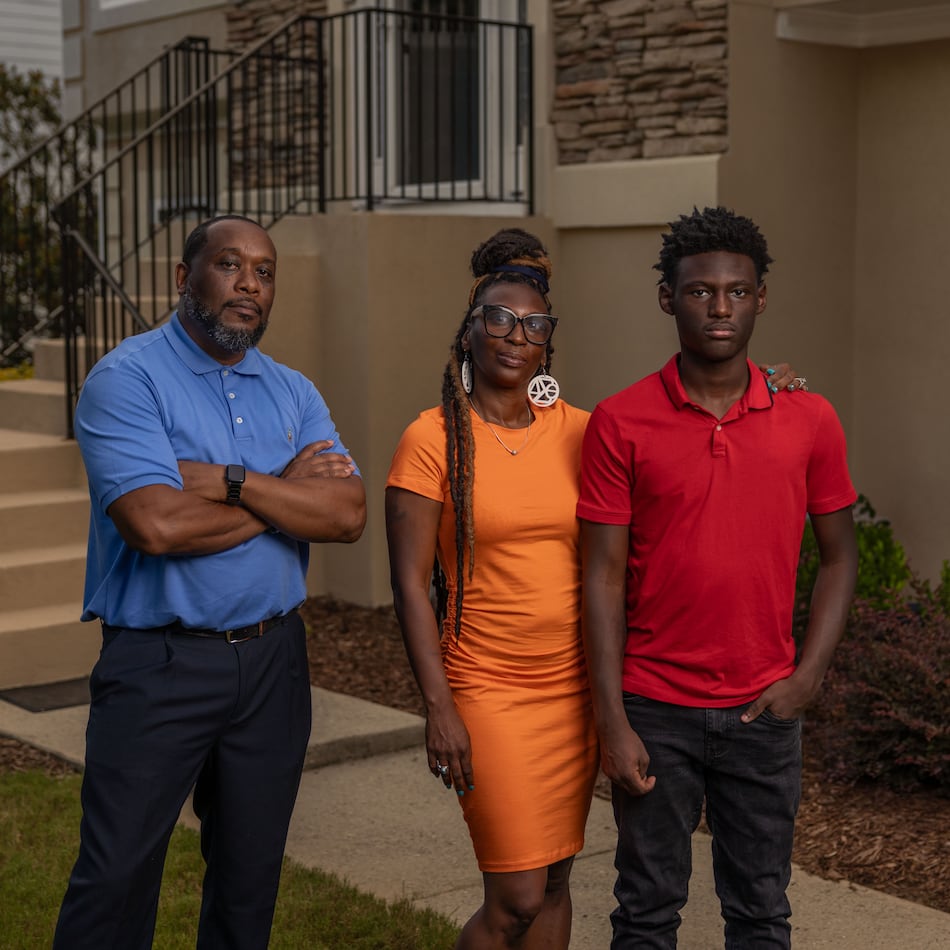After the University of Georgia football team lost its first two games this season, coach Mark Richt traded texts with a supporter.
“I still believe,” Jon Gordon wrote.
“We’re still on the bus,” Richt replied.
Richt’s “bus” wasn’t yellow or silver or four-wheeled; it was a metaphor for his plan for a successful season, adapted from Gordon’s motivational book, “The Energy Bus.”
Richt had heard about the bus from Atlanta Falcons coach Mike Smith, who had brought it with him from the Jacksonville Jaguars three years ago. Other pro and college coaches, including at Georgia Tech, have used it as well.
Today, after nine consecutive wins, Richt says the book was one tool that unified the Bulldogs and kept them moving together despite adversity. For the Falcons, the book helped Smith rebuild the shambles left from the Bobby Petrino-Michael Vick fiascoes.
Amid such distractions, the book helps re-focus athletes, said Tech A-backs coach Lamar Owens.
“Things go on around you, but you control how you see them,” he said. “It doesn't cost anything to have high energy. It doesn't cost anything to make somebody feel good about themselves ... even sometimes when you're not feeling the greatest. If you kind of have some higher energy, then the people around you will have energy, which in turn will pick you up and make you feel even better.”
Gordon, a former Atlantan who earned his masters degree at Emory University, didn’t exactly expect sports teams to boost his title up the list of Wall Street Journal bestsellers.
Nor did he think he was coining a catchphrase when he called pessimistic teammates “energy vampires,” a term the Bulldogs, Falcons and other athletes now drop into conversation.
“I was out for a simple approach to deal with a big problem – negativity,” Gordon said while in town last month at the Business Growth Expo. “Telling someone they are an ‘energy vampire’ put a name with the problem.”
In 2007, Gordon published “The Energy Bus: 10 Rules to Fuel Your Life, Work and Team with Positive Energy." He wrote the 172-page parable to get himself out of the dumps.
His alter ego is the main character, a beaten-down marketing executive named George, whose morning commute is disrupted when his car tire goes flat. Forced to take the bus, George reluctantly meets the driver, Joy, and a cast of regular passengers who teach him how to channel positive energy. George’s revival hinges on following the 10 rules of the “Energy Bus.”
The simple advice is not “any kind of rocket science or anything that hasn’t been written before,” Richt said. “It’s very readable and the imagery in it did help everyone pull together.”
Richt learned about it from Smith, who mentioned it during a camp for Georgia high school football coaches. During the NFL lockout, Richt visited Smith to pick his brain about this and other Gordon books. Coming off a 6-7 season, Richt also wanted a jump-start.
“I’m a person that believes in positive thinking,” Smith said last week. In his first season with the Falcons, “I bought each [player] the book and it was required reading,” he said. “I wanted our guys to understand the importance of positive energy.”
Today Smith often talks to Gordon and brings him in to speak to the Falcons each year. Smith also wears a white rubber wristband that says, “No complaining,” based on another Gordon book with that phrase in the title.
“Mike has been my best catalyst in the sports world,” Gordon said.
Throughout “Energy Bus,” Gordon sprinkles sports references – football, golf, basketball, boxing (“Rocky”), baseball (“Field of Dreams”), even lacrosse. He uses athletes as examples of the power of visualization and the value of a single great sports memory to inspire future success.
Before the experiences that led to “Energy Bus,” life had gone pretty well for Gordon. He had been a high school football player who switched to compete in lacrosse at top-10 ranked Cornell, serving as midfielder and face-off specialist.
“I was always competitive by nature,” Gordon said. “When I was younger, I had dreams of the NFL. Walter Payton was my hero when I was growing up. Playing lacrosse prepared me for what I do today, because whenever I speak to athletes, I know what they’re thinking.”
He then moved to Atlanta, where in 1995 he pursued a master’s in teaching from Emory, met his wife-to-be and started a family. He worked as a paraprofessional in a DeKalb County public school for children with emotional and behavioral problems. He became owner of The Park Bench restaurant in Buckhead.
About 10 years ago, Gordon moved his family to Jacksonville to open a Moe’s Southwest Grill. His finances suffered after the dot-com crash and his wife threatened to leave him because of his negativity.
Gordon started wondering why he was alive and pondering if he should do something different in his life.
“Writing and speaking just kept coming to me, even when I asked God,” he said. “One day when I was struggling, I was walking and praying and this idea came to me for ‘The Energy Bus.' I wrote it in 3 1/2 weeks.”
Gordon said the book resonates most with teams that are like he was when he wrote it – conflicted.
“For Mark Richt, it really resonated because they had energy vampires on the bus,” Gordon said. “Negativity destroys sports teams. Confronting the negativity makes sure the energy vampires don’t run our team. ... So many teams that lose have bad relationships and the team just goes downhill.”
To drill the image into his team, Richt put up a poster of a vampire in the locker room. When a player screwed up, his picture was posted there with fangs and horns.
The back-to-back losses got the UGA bus off to a rocky start. After the second loss to South Carolina, Richt re-emphasized the theme.
"It didn't matter who wanted to come on or who wanted to get off,” offensive coordinator Mike Bobo said. “It was locked and we were going to keep playing."
Early in the season, some UGA players wore “Get on The Bus” T-shirts that featured Richt driving a bus to the Georgia Dome. Now they’re heading there on Dec. 3 for the Southeastern Conference title game.
Staff writers Chris Vivlamore, Ken Sugiura and Chip Towers contributed to this article.
About the Author
Keep Reading
The Latest
Featured


